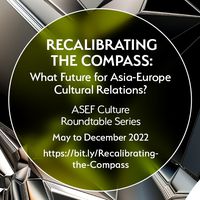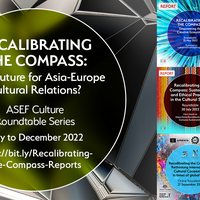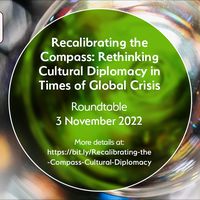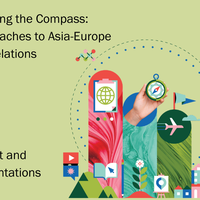Recalibrating the Compass: Empowering the Creative Ecosystem – Roundtable #1 - Report

In 2022, on the occasion of the 25th anniversary of the Asia-Europe Foundation (ASEF) and following the global impact of the Covid-19 pandemic, ASEF has launched a series of online roundtables entitled Recalibrating the Compass: What Future for Asia-Europe Cultural Relations?. The series aims to examine current challenges and identify ways to develop new, more relevant and resilient forms of support for Asia-Europe cultural collaboration.
The first roundtable, Recalibrating the Compass: Empowering the Creative Ecosystem, took place on 25 May, gathering 14 professionals from across Asia and Europe. Facilitated by Grey Yeoh (International Development Consultant (Asia), Australia Council for the Arts), it focused on the current state of artists, arts organisations and other stakeholders in the cultural and creative ecosystem. In particular, participants discussed how the digital divide cuts across the creative ecosystem and its activities, what are the needs in terms of access, training and capability development, how international mobility could develop in more inclusive and sustainable ways, and how gender equality could be strengthened.
The discussion showed some consensus on the need to revise ways of operating in the cultural and creative sectors and for new mechanisms to be established to address the imbalances and challenges observed. The Covid-19 pandemic has provided opportunities to transform to digital formats, reach out to new audiences and accelerate online exchanges and collaborations from which much can be learnt and integrated. However, there is also a perception that significant weaknesses remain. Technology is not accessible nor affordable in the same way to everyone, nor does it fully replace more traditional forms of exchange – indeed, for many there is a sense of ‘digital fatigue’. Furthermore, while connectivity has grown, the creative ecosystem is also, in many countries, more fragmented today, with increasing self-employment and precariousness.
As a result, the need to evaluate the recent past and the present, in order to face the future with new approaches emerged during the discussions. These new approaches should be more nuanced, helping to better understand the advantages and disadvantages of technology and of international mobility, as well as what questions they raise. The following points serve to illustrate the main questions that were addressed.
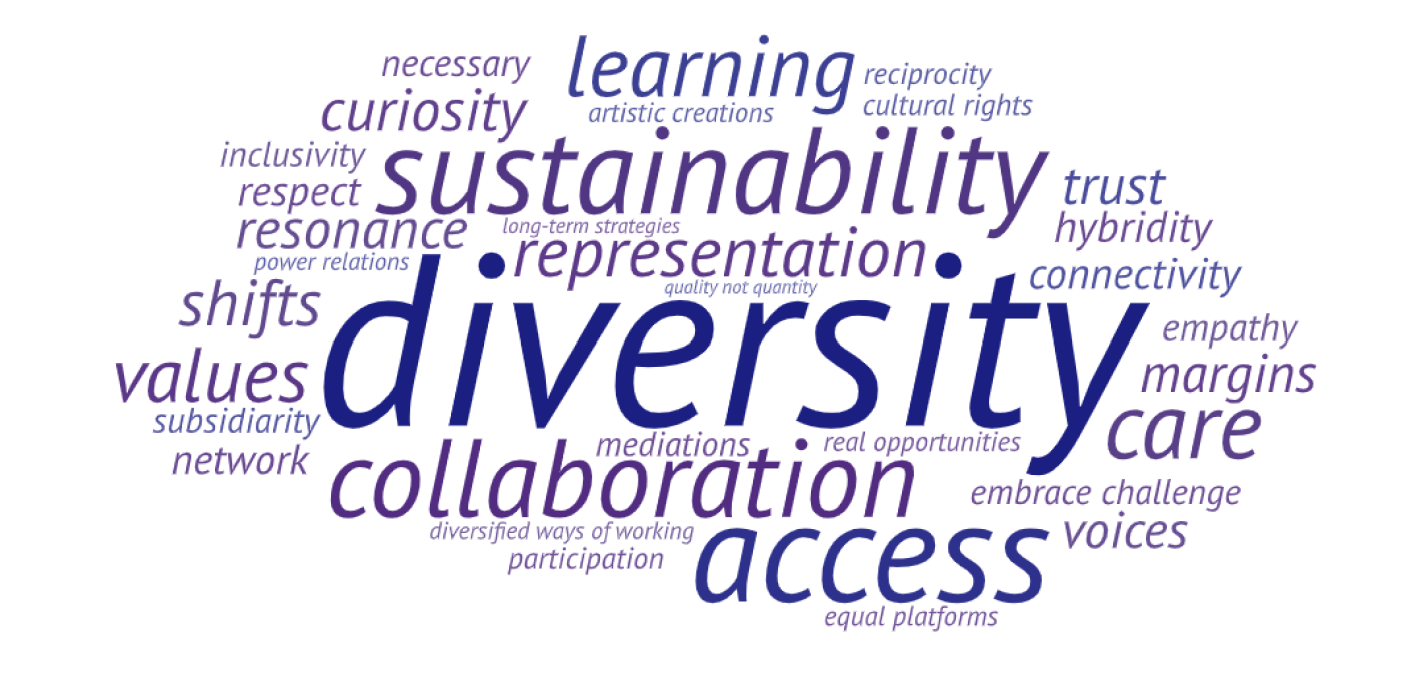
Increasing awareness of the social and systemic dimension of cultural work
Reflecting on the digital divide and how it affects cultural work should also entail being more aware of broader divides– between the Global North and the Global South, different socioeconomic groups, genders, age groups, urban and rural areas, etc. Similarly, international mobility remains affected by economic inequalities, as well as by travel restrictions which pre-existed Covid-19, such as visas, as well as other restrictions that have been introduced thereafter. In this respect, several participants raised questions about the social, political and environmental dimensions of their activities, and how these should be more strongly embedded in everyday practices. A more democratic approach to technology and cultural work, an active engagement with cultural rights and equality and the adoption of the 2030 UN Agenda for Sustainable Development Goals (SDGs) as guidance -while acknowledging that the SDGs do not integrate cultural aspects comprehensively- are some relevant approaches in this respect. ASEF could support reflections in these areas, as well as strive to broaden opportunities for under-represented communities and stakeholders.
Towards slower and more meaningful international mobility
The increasing centrality of online exchanges and the awareness of the substantial environmental impacts of international mobility are some of the factors that led to questioning the forms of ‘hypermobility’ which existed, at least for some professionals, up until the Covid-19 pandemic period. Whereas physical encounters remain important for broadening professional opportunities, building trust, co-designing and co-developing projects, there is also a need for clear criteria to determine when international mobility is relevant, and for whom. For some participants, support for physical travel should benefit slower and more in-depth, meaningful exchanges – that is, travel that allows good-quality encounters and dialogue, and with time between arrival and departure. Organisations such as ASEF could help assess the impacts of mobility and define criteria in this area.
Learning new ways of operating
Awareness of these changes also implies that learning new ways of working becomes central. For some, developing new skills and capacities is the main issue to be addressed in empowering the creative ecosystem. In a context such as that of Asia and Europe, it should involve balanced learning from one another, rather than providing training to others. In facing a more digital environment, learning should focus not only on technical skills, but also on how to adapt and tailor contents and methodologies to online spaces, as well as on the ethical and political implications of technology. There are also many good practices in online engagement and collaboration, which could provide inspiration and learning.
Contributing to more humane technologies
The Covid-19 crisis has witnessed new formats and experimentations around technology, in a process that is still continuing. In particular, some participants suggested that artists and cultural professionals should contribute to humanising technologies, thinking differently about them, connecting them better with everyday practices and developing them in a more inclusive and participatory way. In this respect, it could be necessary to broaden the scope of capacity building in the cultural sector to include areas like Virtual Reality and Artificial Intelligence, seeing them as part of the environment of cultural and creative development.
Reaching out to communities, and making more with less
One of the implications of the commitment to address social divides is the aim to be closer to local communities. This could involve an engagement to being more inclusive, consulting citizens and audiences and being more accountable to them, as well as passing on the knowledge obtained when operating internationally. Bridging the local and the international is one way of being more efficient and making more with less. Similarly, there was a call to explore synergies between different projects and initiatives operating in similar areas, which frequently operate in isolation.
Interpretation and mediation remain necessary
Several of the calls for change outlined above should be facilitated by suitable interpretation and mediation processes. Interpretation is essential, to start with, in its traditional meaning, because linguistic diversity in the Asia-Europe context is something that deserves special consideration, particularly when addressing imbalances, fostering equal opportunities, and generating relations based on reciprocity and equality. Some participants also argued that interpretation was needed to explore how key concepts and themes, such as gender equality, could be understood differently across countries. Information gaps in several key areas, including funding opportunities, persist, despite the availability of resources in this area (such as the On The Move – ASEF Mobility Funding Guides). More generally, there was a perception that other forms of mediation may be required to accompany progress in a digital, diverse, shifting environment, helping to assess challenges and adapt processes accordingly.
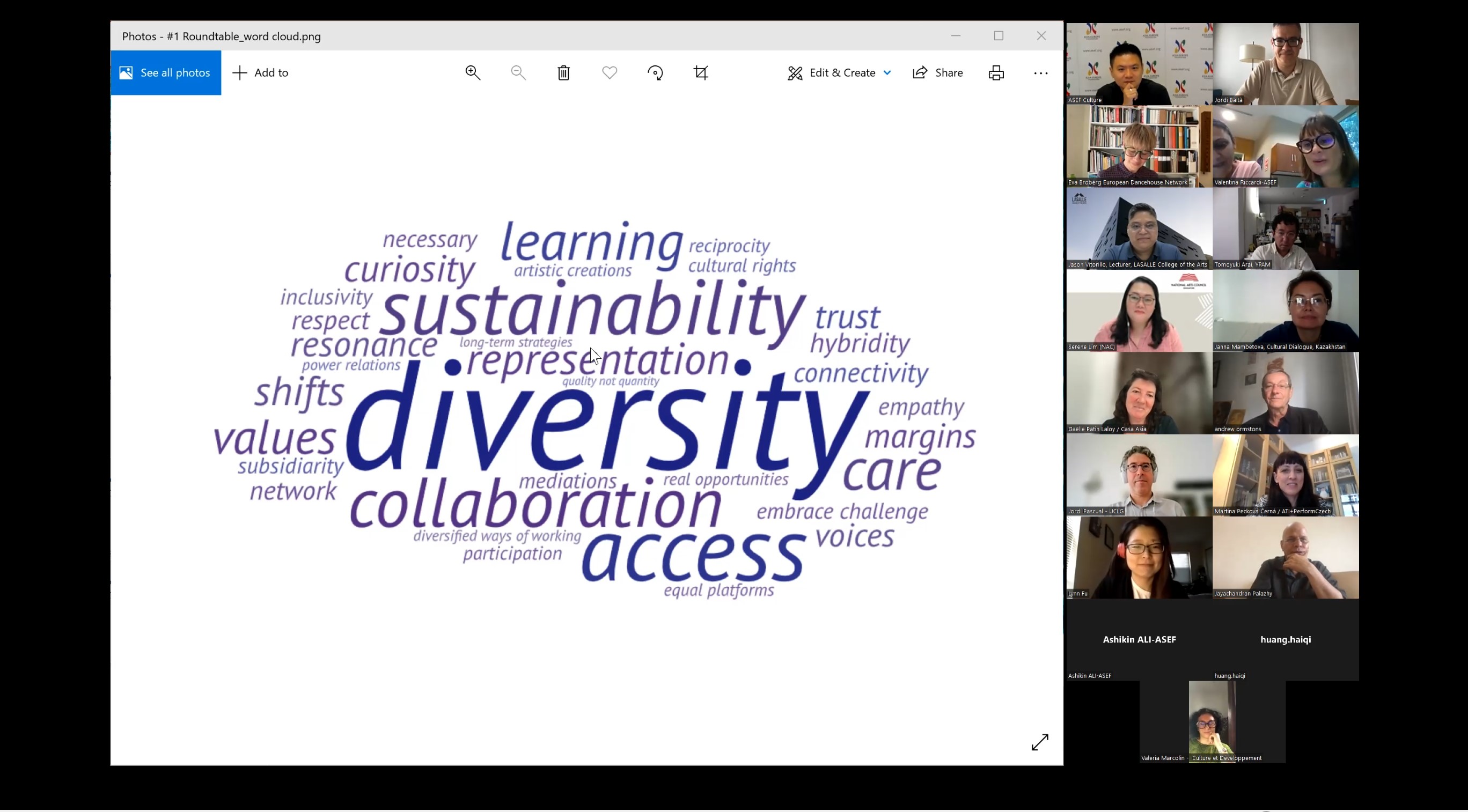
The 1st roundtable of the series Recalibrating the Compass was a rich, engaging discussion, which provided a wide range of inspiring ideas and proposals. The series will continue with 4 new sessions between June and September and will culminate in a public webinar in late 2022, where findings and recommendations from all session will be shared and discussed.
For more information about the series: https://bit.ly/Recalibrating-the-Compass
For the highlights of Roundtable #1: https://bit.ly/Recalibrating-the-Compass-CreativeEcosystem
ASEF would like to thank the following participants for their valuable contributions to Roundtable #1 – Empowering the Creative Ecosystem:
 | Grey YEOH - FACILITATOR International Development Consultant - Asia Australia Council for the Arts (Malaysia/Singapore) | |||||
 | Andrew ORMSTON | 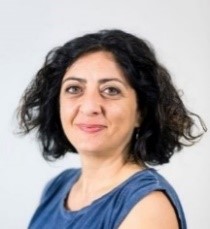 | Ellada EVANGELOU Festival Director Buffer Fringe Festival (Cyprus) | |||
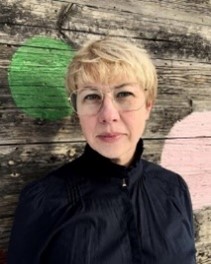 | Eva BROBERG Network Manager EDN – European Dancehouse Network (Spain) |  | Gaëlle PATIN LALOY | |||
 | Janna MAMBETOVA Director Public Foundation “Cultural Dialogue” (Kazakhstan) |  | Jason VITORILLO | |||
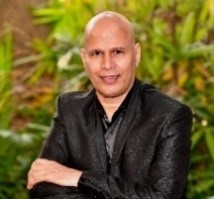 | Jayachandran PALAZHY Artistic Director Attakkalari Centre for Movement Arts (India) |  | Jordi PASCUAL Coordinator United Cities and Local Governments (UCLG) Culture Committee | |||
 | Lynn FU |  | Martina CERNA Head of International Cooperation Department Arts and Theatre Institute (Czeck Republic) | |||
 | Serene LIM Director, Sector Development (Performing Arts) National Arts Council (Singapore) |  | Tomoyuki ARAI Program Officer YPAM – Yokohama International Performing Arts Meeting (Japan) | |||
 | Valeria MARCOLIN Co-director Culture and Development org (France) | |||||
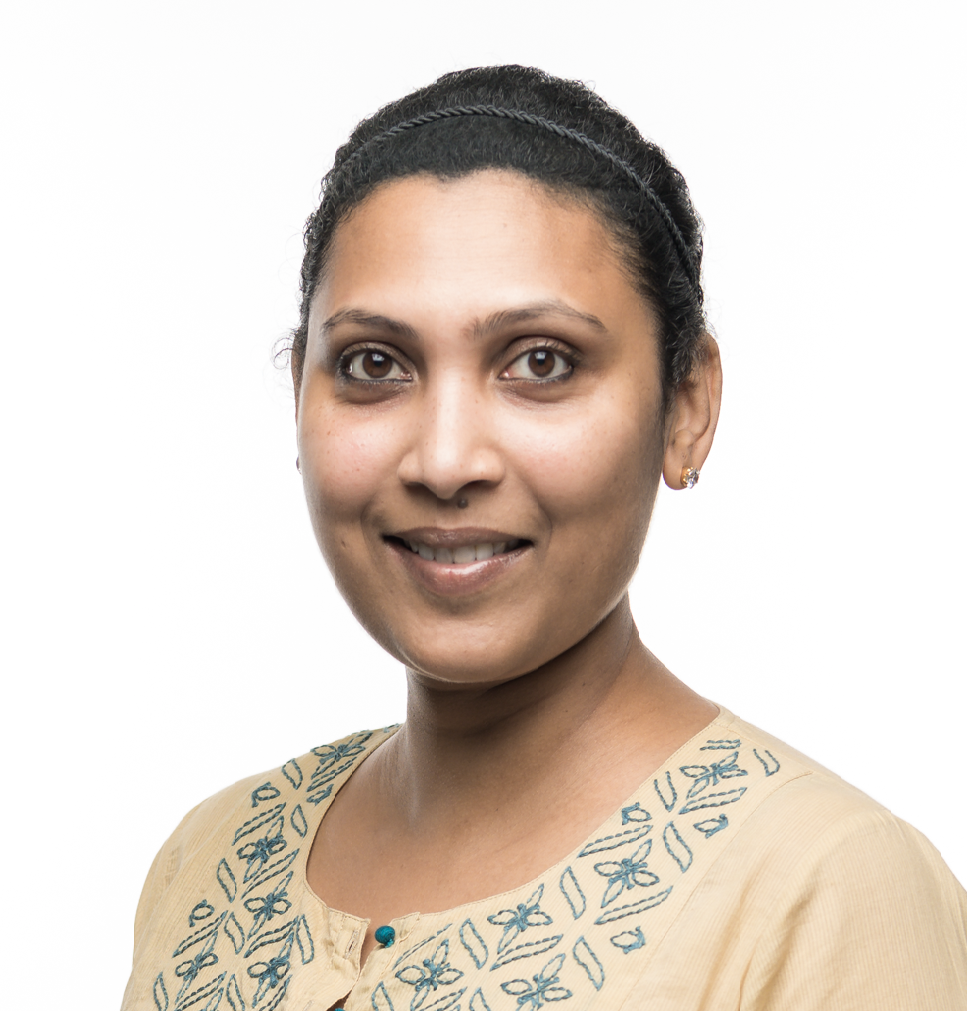 | Preeti GAONKAR - ASEF |  | Valentina RICCARDI - ASEF | |||
| ||||||
Similar content
from - to
25 May 2022 - 25 May 2022
posted on
06 Dec 2022
from - to
03 Nov 2022 - 03 Nov 2022
posted on
26 Jun 2023

